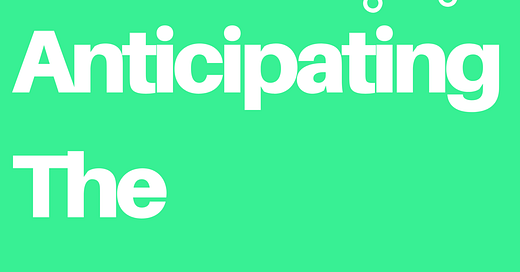This newsletter is really a public policy thought-letter. While excellent newsletters on specific themes within public policy already exist, this thought-letter is about frameworks, mental models, and key ideas that will hopefully help you think about any public policy problem in imaginative ways. It seeks to answer just one question: how do I think about a particular public policy problem/solution?
PS: If you enjoy listening instead of reading, we have this edition available as an audio narration on all podcasting platforms courtesy the good folks at Ad-Auris. If you have any feedback, please send it to us.
- RSJ
We have been writing about Radically Networked Societies (RNS) for the past couple of editions. Maybe you have had enough of it. But not the world around us. After the Rihanna/Greta tweet episode that led to the government mobilising its own RNS with film stars and cricketers in the van, we now have moved to the next stage of the battle of RNS.
New Front
The government this week asked Twitter to remove over 1000 accounts and posts which it believes spread misinformation about the new farm laws. Twitter responded by reducing the visibility of the hashtags that contain harmful content and suspending more than 500 accounts, some permanently, that violated its rules. But the government isn’t satisfied with the response. It has upped the ante now with not so subtle threats of arrests of Twitter officials if the company didn’t comply with the government orders under Section 69A of IT Act.
Into this mix jumped in Koo - Twitter’s Indian knockoff with the added feature of sending messages using eight Indian languages. The usual atmanirbhar noise was made by its founders and investors and soon we had ministers, MPs and ‘nationalist’ Twitter users advertising their migration to Koo. Of course, as the shift to Koo gathered momentum, the other camp started mock celebrating the ‘cleaning up’ of Twitter.
It is apparent there’s a level of government support to scale up Koo. The reasons are obvious. The government views the global social media giants with suspicion based on their broader liberal inclinations around the world. These companies follow their own free speech code and won’t always toe the government line on key issues. The impact of RNS in mobilising an opinion against a government plan was clear from the recent events. Why would the state want to be held to ransom by non-state actors with low stakes and a disproportionate voice? The solution to this for the state is either to curb the freedom of social media sites or to promote a homegrown site that can be controlled. My guess is we will try both.
Will it succeed?
Probably not. Why?
Well, let’s first get the most obvious reason out of the way. Network effect. Social media sites are addictive because of it. Koo might get a few users in the early days who are swept in with the momentum. But like we have seen in the past with Whatsapp users moving to Signal or left-wing Twitter users moving to Mastodon (remember), these things don’t really take off. People find the user interface clunky, miss features familiar to them or find a truncated version of their network that force them back to the old platforms. Network effect is a very strong moat. I will be surprised if Koo bucks this trend.
But network effect is not the lens that interests me here. If you were to apply a political philosophy lens to this migration to a like-minded social network, there are a few interesting points to consider here.
Firstly, your politics is defined more by what you specifically oppose rather than what you support. Your opposition is what defines you in specific terms; in fact, politics comes about because some people group together in opposition to others. This is a bit of a rehash of the Schmittian claim that the specific political distinction in society hinges on the friend-enemy distinction. Schmitt believed any difference that marks out a group from the other will take a political hue if it has the strength to align them into opposing and warring camps ready to inflict real damage onto others. Now I have no sympathy or time for Schmitt in general. The man was a fascist. But on this, he makes a compelling argument. You take away the friend-enemy distinction and the political engagement fades away. Leo Strauss writing to Schmitt in 1932 had summarised Schmitt’s view on political distinction:
"because man is by nature evil, he, therefore, needs dominion. But dominion can be established, that is, men can be unified only in a unity against—against other men.”
So, the right or the left-wing aiming for a social network that only has people like them and no enemies to unite against is a recipe for long-term disengagement with politics for its members. Confronting the enemy and beating them on any platform is necessary for the political existence of a group.
Secondly, a homogenous identity within a group invariably splinters the agglomeration. There is a simplistic assumption that once the friend-enemy distinction disappears because there is no longer an issue that separates members of a group, the political contest ends. This was the predominant assumption in the early 90s when the liberal democratic order felt it had vanquished the other. As later events have shown, political identity abhors a vacuum. People will find another identity to take on that will replicate the intensity of political conflict of the past. To repeat Straus: "because.. man needs dominion.” Any move to sequester your group from your enemies will lead to your group finding enemies within to fight.
Thirdly, it is ironical to find the right-wing or the conservatives (as loosely defined in India) moving to a platform that will encourage their common identity. The conservative critique of liberalism is that it aims for a vague universalism and a common bond among people across all markers of identity. The individual identity that’s built over centuries, that’s localised and which is linked to tradition and custom gets subsumed in this utopian ideal. This is an anathema to the conservatives who value individual identity and distinctiveness. To transition out of platforms that support diverse identities, however inimical to you, to single identity platforms will be going against the core belief of conservatism. It will diminish conservatism eventually.
To close, exclusive social media platforms based on ideologies might take off if they somehow create their own network effect fast enough to retain a critical mass of their members. However, it will also sow the seed for the future splintering of the group. A homogenous unit is the most fragile. Diversity is anti-fragile. And there are benefits of having enemies.
As Kabir said all those centuries ago:
“निंदक नियरे राखिए, ऑंगन कुटी छवाय,
बिन पानी, साबुन बिना, निर्मल करे सुभाय।”
(Keep your critics close, they improve you)
HomeWork
Reading and listening recommendations on public policy matters
The Wired on How to Break Out of Your Social Media Echo Chamber
From the Hesiod’s Corner, Carl Schmitt: The Friend-Enemy Distinction











Share this post